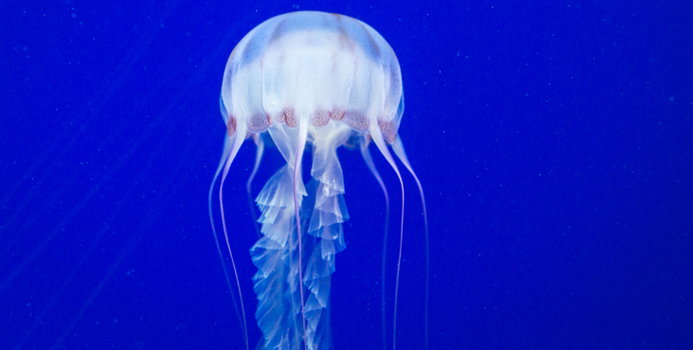There are a lot of exotic foods in this world, and while you may have been tempted to try out insects at some point, we doubt you've thought about eating jellyfish—but you definitely should.
Jellyfish are abundant, which in part is due to the overfishing of finfish. In fact, a study by Slovenian and Portuguese scientists suggests that we need to start eating jellyfish—in particular, the mauve stinger, which has become increasingly popular on the shores of Britain in recent years—in order to reduce their numbers. According to The Independent, the number of jellyfish in the Mediterranean has risen by 400 percent in the last 13 years due to pollution and climate change.
People in Asian countries already consume jellyfish, which consist of mostly protein and water, but those living in the West have been more reluctant to try a food that we deem to be exotic. But what can you expect, taste-wise? Jellyfish have a texture that is similar to that of oysters, they also taste similar considering that they are comprised of 90 percent sea water, this according to Professor Silvio Grecio, who has been trying to think up ways to get jellyfish on the menu.
Grecio has also come up with a suggestion of how to eat them. According to BBC, he revealed that you should boil them for a few minutes in lemon juice and vinegar, then plunge it onto ice. The boiling process allows the jellyfish to be sterilized and gets rid of the stinging poison and bacteria.
Sounds appetizing, right? No, not really, but it seems that jellyfish need new predators, and man may be the solution. Plus, they may even have surprising health benefits, because according to Health Guidance, jellyfish contain "calcium binding proteins which improve memory and help to fight age-related cognitive decline."
[Image via Shutterstock]



